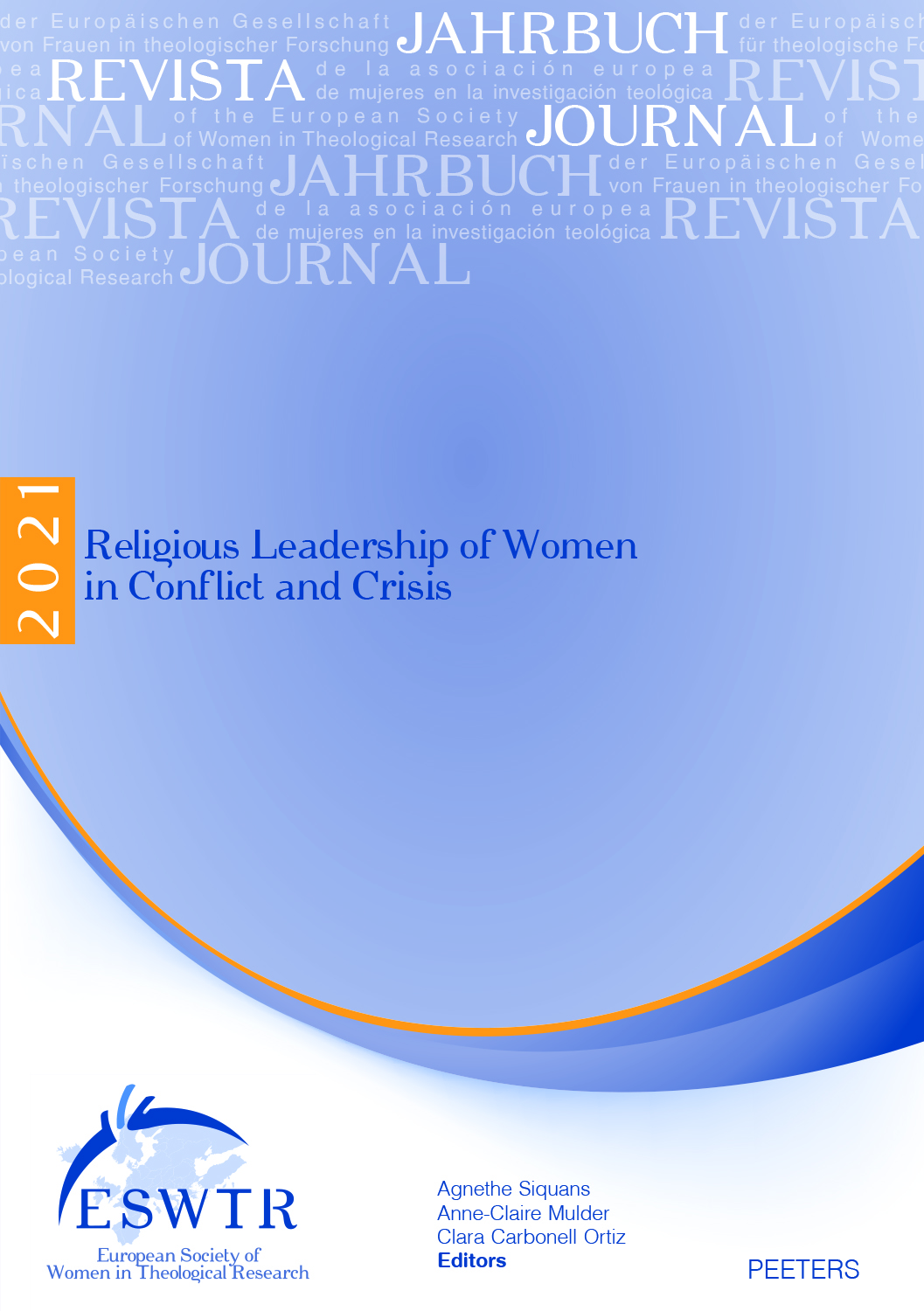 previous article in this issue previous article in this issue | next article in this issue  |

Preview first page |
Document Details : Title: Cherchez la femme Subtitle: À la recherche des inspiratrices de congrégation féminines sur les territoires polonais Author(s): WALUŚ, Monika Journal: Journal of the European Society of Women in Theological Research Volume: 11 Date: 2003 Pages: 161-183 DOI: 10.2143/ESWTR.11.0.583285 Abstract : This article describes the history of the Roman Catholic women’s movement and congregations in Polish areas in the nineteenth century. At the same time it considers the development of the engagement of women in the church. The history of these women’s organizations is often written without the women who stood at their beginning. Church historians clearly believe the role of the bishops or other office holders who enabled the legal establishment of such organizations to be more important. The women who founded these organisations had to struggle on two fronts: they had to prevent their initiatives from being subsumed into other, already existing, forms of association; and they had to act carefully in the complicated political situation, which forbade Polish women to take any initiatives in the public arena. Women refused to be restricted to an enclosed life; instead they worked as teachers and leaders and were responsible for important moves towards renewal. Der Artikel beschreibt die Geschichte der römisch-katholischen Frauenbewegungen und Kongregationen in den polnischsprachigen Gebieten im 19. Jahrhundert. Damit vergegenwärtigt er zugleich die Entwicklung des Engagements von Frauen in der Kirche. Die Entstehungsgeschichte dieser Frauengemeinschaften wird oft ohne die Frauen, die am Anfang standen, geschrieben. Offensichtlich erscheinen Bischöfe oder andere Amtsträger, die die Existenz dieser Gemeinschaften kirchenrechtlich abgesichert haben, den KirchenhistorikerInnen als wichtiger. Die beschriebenen Frauen mussten im doppelten Sinne um ihr Berufsverständnis kämpfen: Einerseits mussten sie sich gegen Versuche zur Wehr setzen, dass ihre neuen Initiativen bereits vorhandenen Assoziationsformen einverleibt wurden; andererseits mussten sie wegen der komplizierten politischen Situation vorsichtig agieren, da öffentliche Betätigungsfelder polnischen Frauen nicht offen standen. Frauen ließen sich nicht auf die Klausur beschränken, sondern wirkten als Lehrerinnen und Leiterinnen und gaben wichtige Erneuerungsimpulse. |
 |


